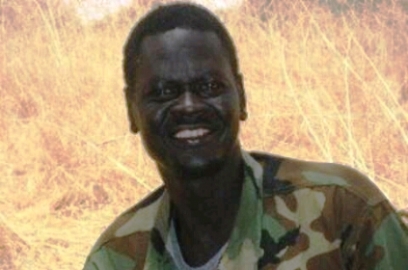Khartoum says South Sudan’s Almaz must leave Sudan
November 5, 2017 (KHARTOUM) – Sudanese authorities have refused to deliver a residence permit to a South Sudanese who fought in the ranks of the rebel Justice and Equality Movement (JEM) before South Sudan’s secession.

The former rebel is also married to a Sudanese woman.
Almaz told Sudan Tribune on Sunday that he may be expelled to South Sudan pointing to Khartoum refusal to deliver him residence permit and the silence of all the countries to which he filed a demand of humanitarian asylum.
Further, he disclosed that the Presidential Assistant Ibrahim al-Sanusi paid him a visit on Sunday after meeting President Omer al-Bashir to discuss his situation.
“President al-Bashir told him that the decision to deport me is irreversible for security reasons,” he said, adding that he has the freedom to choose any destination that he wants, “but I will not have a residence here”.
Also, he was urged to make a decision as soon as possible.
Almaz applied for asylum in Britain, Germany, U.S. and Norway, but he did not receive a response so far. He is expected to be deported within 72 hours to South Sudan.
“My appeal to the world and the nations that respect humanity to do something for me in the coming hours,” he said.
Last week, a joint delegation of rebel groups met with British officials at the Foreign Office in London and called to give Ibrahim Almaz and his family the asylum in Britain.
Almaz who was JEM Secretary for Southern Sudan Region had been arrested near Jebel Moon area, West Darfur state, in January 2011 with 11 other rebels.
But before to join the armed rebel group, Almaz was a member of the Popular Congress Party (PCP) of Hassan al-Turabi. the Islamist party was part of the opposition groups. But, they are now part of national unity government formed after the national dialogue process.
(ST)
